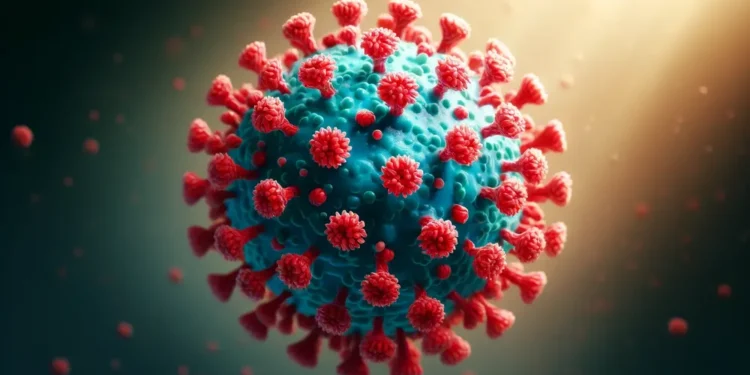New Delhi: A groundbreaking study has identified damage to the brainstem as a significant cause behind the persistent physical and psychiatric symptoms experienced by many COVID-19 survivors. This discovery sheds light on the long-term effects of severe COVID-19 infections and opens new avenues for treatment.
Researchers from the Universities of Cambridge and Oxford conducted the study using ultra-high-resolution scanners to observe the brains of 30 individuals who had been hospitalized with severe COVID-19 early in the pandemic. Their findings, published in the journal Brain, revealed that SARS-CoV-2 affects brainstem regions associated with breathlessness, fatigue, and anxiety.
“The brainstem is the critical junction box between our conscious selves and what is happening in our bodies,” explained Professor James Rowe from the Department of Clinical Neurosciences, who co-led the research. “Understanding how the brainstem changes in response to COVID-19 will help explain and treat the long-term effects more effectively.”
The study found abnormalities in multiple regions of the brainstem, including the medulla oblongata, pons, and midbrain. These abnormalities were consistent with a neuroinflammatory response and appeared several weeks after hospital admission. The affected brain regions are responsible for controlling breathing, which may explain the persistent breathlessness reported by many COVID-19 survivors.
Additionally, the changes in the brainstem were linked to increased depression and anxiety among the survivors. Dr. Catarina Rua from the Department of Clinical Neurosciences noted that these effects were more pronounced in individuals who had experienced severe COVID-19, regardless of age and gender.
The researchers believe that their findings could also help decode other conditions associated with brainstem inflammation, such as multiple sclerosis and dementia. This study marks a significant step forward in understanding the long-term impacts of COVID-19 and developing targeted treatments for those affected.







